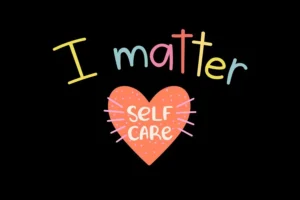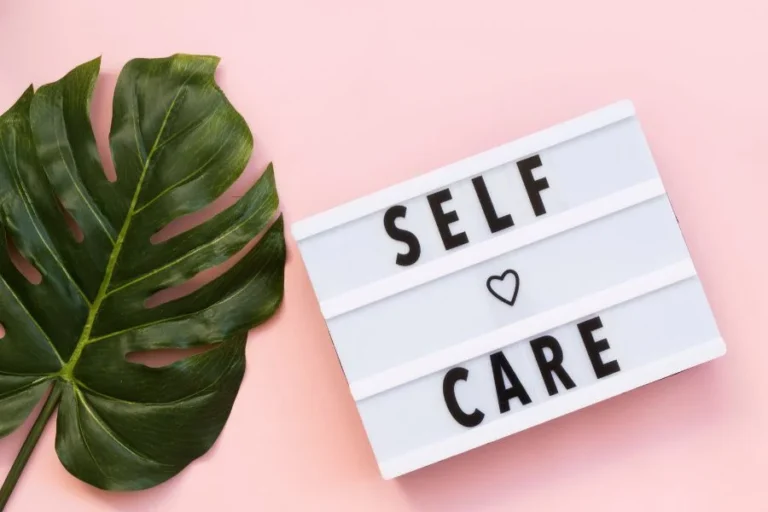Has someone become overly attached to you? If you have observed such signs that he is obsessed with you, then it is essential to separate customary admiration from obsession. In this article, you will learn how to identify these signs early, including excessive communication and excessively affectionate behavior.
Knowing these things helps you prepare to face such intricate situations and be able to set boundaries and ask for help. You are not the only one who has to cope with this issue—smile while finding out how to prevent and cope with unhealthy thoughts. Please continue reading to be equipped with measures and information aimed at protecting your health.
Table of Contents
Can Obsession Be True Love?
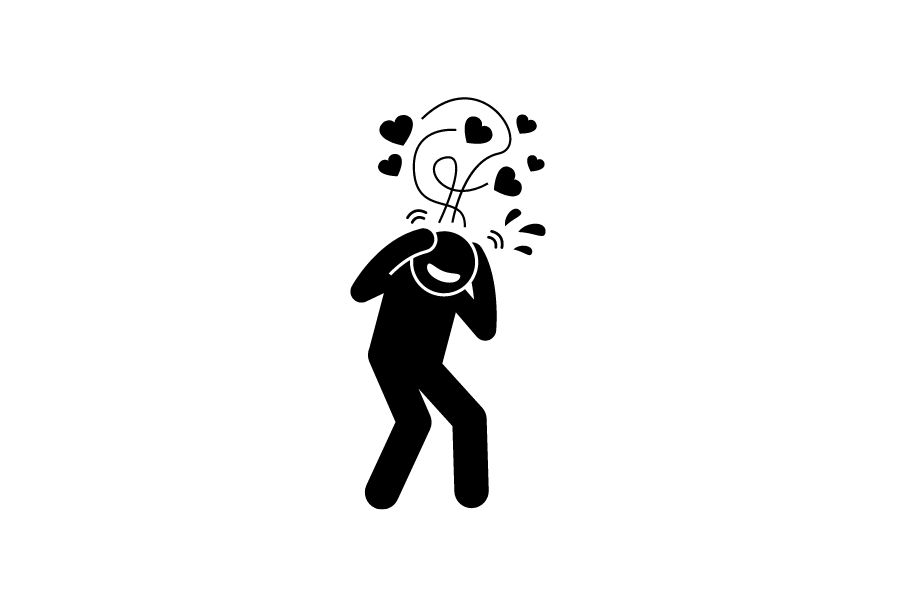
Yes, obsession can mimic love at the beginning. However, when the natural face is shown, obsession tends to manifest through possessiveness, jealousy, and other controlling behaviors that do not care about the other person’s wishes or boundaries. For example, following a partner’s actions or insisting on knowing their whereabouts at any given time can be a sign of fear or insecurity instead of love and concern.
An example may be a person who lavishes their partner with gifts and attention to the extreme, only to become angry or distant if their advances are not returned as desired. This behavior is not motivated by the pursuit of happiness for both partners but instead aims to establish power over the partner.

On the other hand, true love can be described as respect, trust, and support between two people. This means that both of them can maintain their individuality and pursue their interests without feeling that the relationship hampers their choices. Love in healthy relationships entails the ability of the two partners to express their feelings and ideas to each other without any form of intimidation or aggression.
For instance, within a loving relationship, both people support each other in their achievements and do not consider the other as a competitor. They help each other overcome obstacles and respect each other’s demands for personal space and time apart.
Related reading: 14 Signs He’s Obsessed with You in a Good Way – True Love!
15 Signs That He Is Obsessed With You in a Bad Way
Signs That He Is Obsessed with You in a Bad Way are discussed below in deep detail:
1. Constant Communication

They constantly text and call you and want to be updated every second about what you are doing. For instance, they can send you multiple texts, including when you are at your workplace or hanging out with friends. This behavior involves a degree of pathologic need for power and affirmation.
This, according to psychologists, is attributed to insecurity and fear of losing the other partner in the relationship. Sigmund Freud, the founder of psychoanalysis, argued that such behavior could be due to childhood fears that were not dealt with properly. That is also a problem because too much communication is unhealthy and results in people getting burned out.
2. Excessive Attention on Social Media

Obsessed people constantly engage with your posts: like, comment, share them, and respond promptly to any content you put out there. For instance, they can post something as simple as commenting on old images or tagging you continuously. This behavior reveals a rather unhealthy obsession.
Dr. John Grohol, an expert in social media, notes that this characteristic shows that people want to be involved in every aspect of their lives. Many historical characters, such as philosopher Michel de Montaigne, have prophesized against the loss of privacy and personal space. It helps to set limits online to keep yourself safe and avoid getting overwhelmed.
3. Frequent Unannounced Visits
It is usually acceptable to pay a surprise visit once in a while, but doing it very often is rude. Think about having a stranger walk into your house or workplace unannounced. This behavior can be interpreted as an invasion of your personal space.
As argued by relationship specialists such as Dr. Terri Orbuch, this arises from a desire to check on you and monitor your conduct. Existentialist Jean-Paul Sartre stated that proximity without permission is a violation of privacy. It is crucial to stop this behavior to maintain your autonomy and feel comfortable.
4. Over-the-Top Romantic Gestures

Large romantic gestures may appear quite pleasing but are often entirely unwanted. For instance, you are ordering dozens of roses for your workplace or planning fancy surprises without your permission. These gestures are generally characteristic of domination and possessiveness. Hence, such behavior may be manipulative with an intention of making you feel guilty, or indebted as noted by Dr. Helen Fisher.
Learn the difference between genuine affection and unnecessary displays where you feel like your personal space is being invaded. The protagonist of Shakespeare, Romeo, might have been romantic, but his behavior is intense and close to obsession.
5. Obsessive Texting and Calling

One significant sign of obsession is that he sends multiple texts and calls within a short interval of time. For instance, they may call or text you frequently if they do not receive any response from their side. This kind of behavior is not about being communicative but authoritative.
The relationship counselor, Dr. Gary Chapman, encourages couples to establish clear communication boundaries. Constant texting and calling may cause stress and anxiety, which is detrimental to one’s feeling of calmness and independence. Following ancient insight into interpersonal relations, Confucius stressed moderation and proper interpersonal conduct.
6. Tracking Your Movements
One of the most alarming signs of stalking is when an individual uses apps or devices to track your location without your permission. Ponder for a moment; someone is aware of your every action, your area, and even your company. Such action is a gross violation of privacy.
These actions, as Dr. Harriet Lerner noted, stem from distrust and the desire to take charge of everything. It is crucial to stop this behavior as soon as possible in order to protect your liberty and physical integrity. In “The Art of War,” Sun Tzu underscored the value of freedom and being free from restraints, even in intimate partner matters.
7. Intense Jealousy and Possessiveness
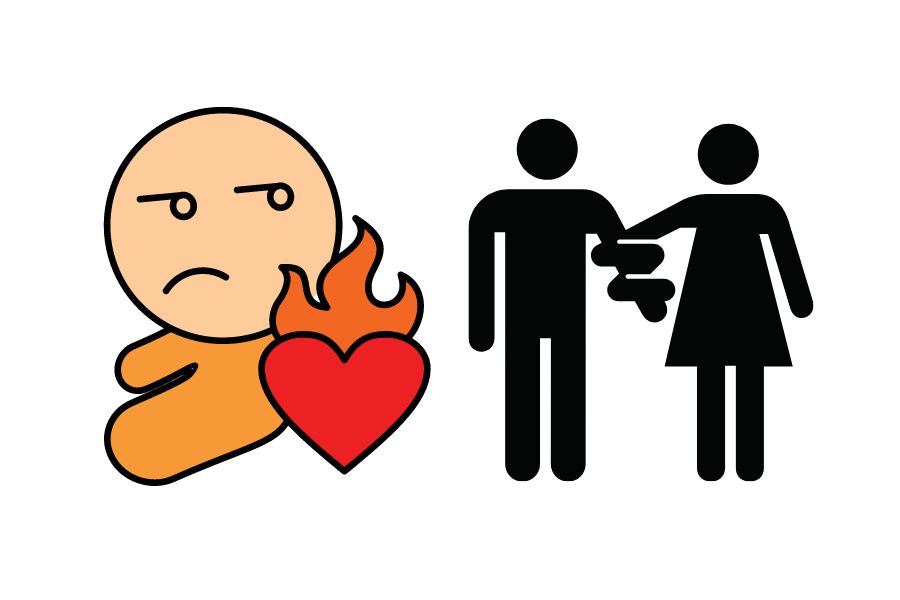
Obsessive people are incredibly jealous and possessive; they get angry or anxious when you socialize with other people. For instance, they might ask you about every friend or coworker. This type of behavior is unbecoming and is a clear sign of insecurity.
Jealousy, in moderation, is normal, but extreme jealousy is toxic, according to psychologists like Dr. Joshua Klapow. The ancient philosopher Aristotle also stressed moderation in everything and relationships in particular. To ensure that the relationship dynamic remains healthy, it is essential to stop this type of behavior.
8. Invasion of Privacy

Snooping through your phone, emails, or bags is also a violation of privacy. Try to think about how it would feel if someone were reading your messages or rummaging through your belongings. This is a sign of disrespect and a lack of trust.
Relationship specialists, including Dr. Brené Brown, highlight the fact that people have a right to privacy in every relationship. From the book of Marcus Aurelius, it is shown that it is important to recognize other people’s rights. One should stand up for one’s right to privacy, and any invasion of the same should be addressed accordingly.
9. Attempts to Isolate You From Friends and Family
One of the main traits of obsessive people is making sure that the target does not have contact with friends and relatives. This kind of behavior is meant to make you rely solely on them.
According to relationship experts such as Dr. John Gottman, isolation is a form of control. Aristotle also supported the concept of having many relationships in one’s lifetime and living a balanced life. Preservation of other friendships is essential for your emotional health when you are in a romantic relationship.
10. Manipulative Behaviors
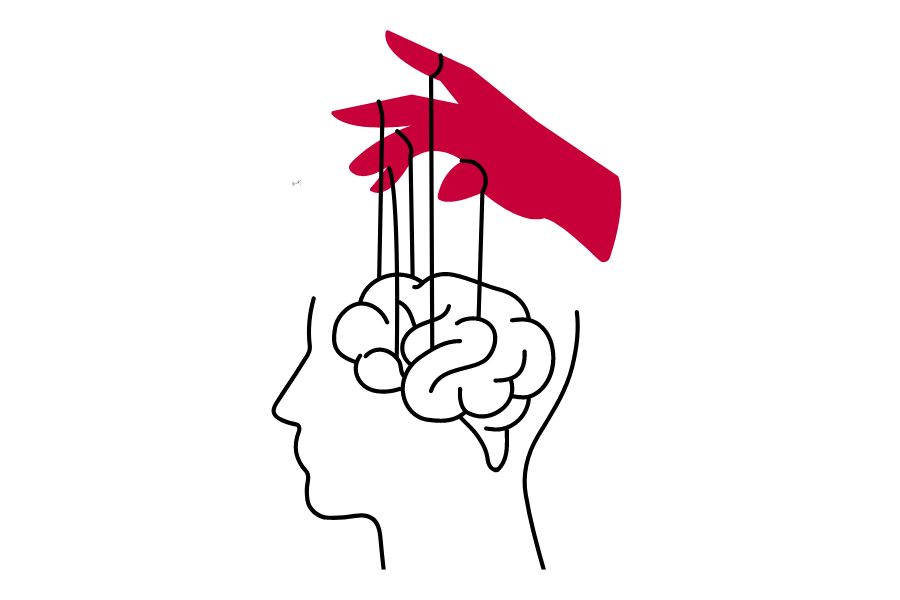
Some forms of psychological abuse are guilt-tripping, gaslighting, and playing mind games with the target. For instance, to make you feel guilty for spending time with other people. This is unhealthy, and its primary goal is to dominate you.
Clinical psychologists such as Dr. Robin Stern observe that manipulation decreases self-worth and personal sovereignty. The previous authors, such as Machiavelli, used manipulation as a topic of discussion, and they described its effect as unfavorable. It is crucial to identify and stop such manipulations for the sake of your well-being and the proper functioning of the relationship.
11. Overbearing Presence in Your Daily Life
An obsessed person will desire to be included in every activity within your schedule and may demand to be with you even when going out to do chores. This behavior is oppressive and restricts your liberty.
Different sources such as Dr. Harriet Lerner discourage dependency by ensuring that one establishes boundaries in the relationship. Lack of self-esteem is at the root of domination. Jean-Paul Sartre, one of the most prominent existentialist philosophers, underscored the importance of space and freedom in the preservation of individuality.
12. Lack of Respect for Your Boundaries
Disregarding your boundaries and insistence on getting closer to you is an act of obsession, like calling or texting you when you told them not to. Such behavior is an apparent disregard for your rights and the ability to make decisions for yourself.
Dr. Henry Cloud, a relationship counselor, also pointed out that boundaries are essential in any healthy relationship. There are time-honored sayings from Lao Tzu that we can adhere to when dealing with other people. Boundary concerns should be discussed before they turn into severe problems so as to maintain professional courtesy.
13. Obsession with Knowing Your Whereabouts
Stalking behavior can be identified as a persistent and intrusive inquiry into your whereabouts and company. This behavior is due to a lack of trust and the need to exert control.
Psychology affirms that trust is an essential foundation in interpersonal relationships. Buddha also discussed trust since total trust leads to total relaxation and no control. It’s important to express your feelings of discomfort and ask him not to make revelations about your location.
14. He Ignores Other Interests
A stalker can become obsessed and lose interest in activities that they used to enjoy, including projects and friends. This kind of behavior clearly points to an obsession.
According to psychologists such as Dr. Lisa Firestone, it is helpful for both parties in the relationship to have personal interests. It is also essential to help your partner fulfill their dreams. People in history such as Benjamin Franklin supported the notion that one should pursue different occupations during a lifetime.
15. Mood Swings Related to Your Actions
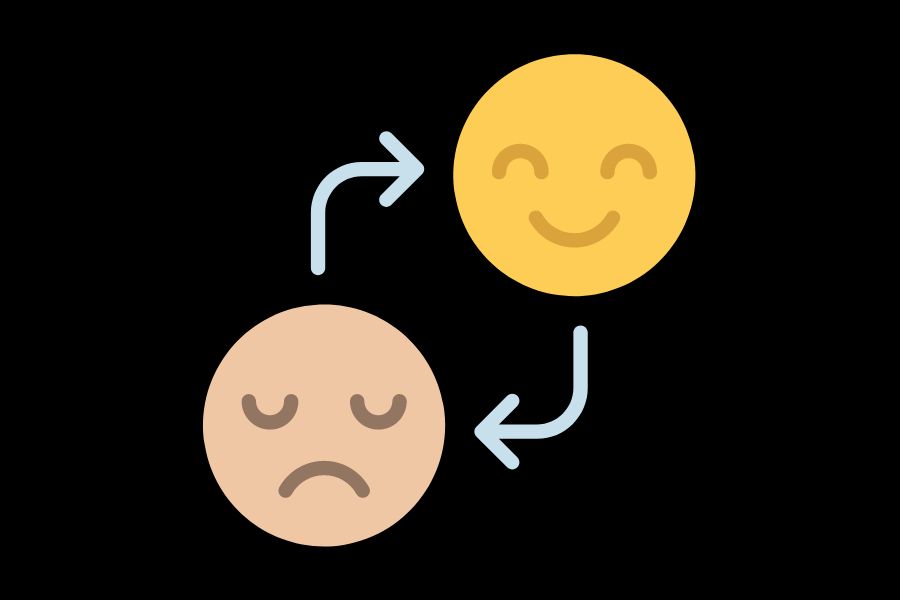
They flip between moods depending on your actions or reactions, including happiness when together and anger when apart, which is entirely self-serving and emotionally charged.
Other professionals, including Dr. Steven Stosny, say that such changes in moods are signs of deeper problems. The Romans, especially those who followed the Stoics, such as Seneca, encouraged strict working and emotional regulation. It is essential to note this pattern and try to correct it for mutual emotional equilibrium in the relationship.
Healthy vs. Unhealthy Obsession in Love
The difference between healthy and unhealthy obsession in love is discussed in the table below:
| Aspect | Healthy Obsession | Unhealthy Obsession |
| Emotional Balance | Emotions are balanced and positive. | Emotions are intense and volatile. |
| Independence | Both partners keep their uniqueness and personal interests. | One or both couples feel unable to function separately. |
| Trust | Trust is fundamental and unquestionable. | Distrust and jealousy are common. |
| Communication | Communicate openly, honestly, and respectfully. | Communication is deceptive, manipulative, or domineering. |
| Support | Mutual encouragement and support for personal development. | It is controlling behavior that prevents personal growth. |
| Boundaries | Respect for individual boundaries and space. | Personal boundaries are disregarded, resulting in suffocating. |
| Time Together | Quality time is balanced with time away. | There is an excessive yearning to be together all the time. |
| Self-Esteem | Both partners have positive self-esteem. | One partner’s self-esteem is strongly reliant on the other’s validation. |
| Conflict Resolution | Conflicts are settled constructively and fairly. | Conflicts frequently occur intensely and are unsolved. |
| Dependency | Emotional assistance without excessive dependency. | Unhealthy levels of emotional and bodily reliance. |
Psychological Aspects of Obsession
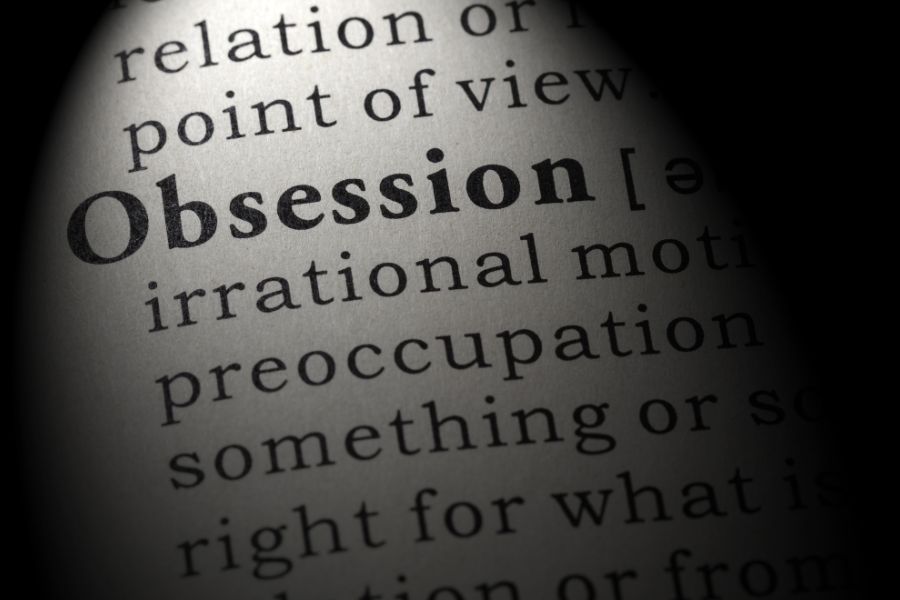
Basics of Psychology provides you with the psychological aspects of obsession, which are discussed below:
What is the leading cause of obsession?
Obsession can be a manifestation of low self-esteem and personal anxiety. It is most often a result of fear of loss or rejection and as such the individual clings to the object of obsession.
People who have low self-esteem or those who have experienced trauma in the past are more likely to develop obsessions. For instance, a person who was abandoned in childhood may develop an obsession to ensure they never experience that feeling again.
How Obsession Develops Over Time
Obsession doesn’t happen overnight. It starts with passionate liking that may be mistaken for love.These feelings gradually grow into a full-blown fixation with every possible detail regarding the object of obsession. This can progress into a pathological desire to be around or have extensive knowledge about the individual, which may involve texting or stalking.
Emotional and Psychological Impact on the Obsessor and the Obsessed

The obsessor is full of anxiety and stress, and he/she needs constant validation and reassurance all the time. Such an approach may result in the erosion of personal boundaries and a lack of attention to other significant spheres of life.
On the other hand, the object of obsession often feels a growing sense of smothering and entrapment. They may fear and get uncomfortable because of close attention, which might harm their psychological health and liberty. For instance, they may avoid going to events that they know the obsessive individual will be attending.
Research Data to Back Up Claims
Studies have found that there is a close link between obsession and attachment styles. According to the Journal of Social and Personal Relationships, people with anxious attachment patterns tend to display obsessional behaviors in their intimate relationships.
Read more about attachment styles: Bowlby’s Attachment Theory: Promoting Healthy Attachment
In addition, findings from the American Psychological Association show that other psychological disorders, such as personality disorders, frequently accompany obsessive love. For instance, in patients with Borderline Personality Disorder, obsessions might stem from the pathological fear of abandonment.
What to Do If a Guy Is Obsessed With You?
Basics of Psychology offers you the following tips given below so you can deal effectively with the signs that he is obsessed with you:
Recognizing the Warning Signs Early
It is essential to identify early signs of obsession in a relationship so as to protect one’s mental and physical health. It starts with behaviors that may appear loving and nurturing but may end up being abusive in the long run. These signs include:
- Excessive Communication
- Monitoring Your Activities
- Jealousy and Possessiveness
- Privacy Deficit
- Lack of respect for boundaries
Related reading: 10 Yellow Flags in a Relationship: Signs Not to Ignore!
Setting Firm Boundaries
It is crucial to set and uphold personal boundaries when interacting with someone displaying signs of obsession. Set up clear communication boundaries as well as expectations for interaction, shared time, and physical distance. For example:
| Communication Boundaries | Avoid contacting each other all the time or setting a maximum number of times in a day/week to avoid inconvenience or added pressure. |
| Personal Space | Regulate your alone time or time with your friends and families without any feeling of guilt, or you have to be always around. |
| Respect for Privacy | Stress the appropriateness of not using your phone, including your social media accounts, without prior permission. |
Successfully addressing the issue of boundaries requires consistency in enforcing these rules. One must stand one’s ground and be authoritative, even if the other person resorts to emotional tactics to get what they wants.
Communicating Your Feelings
Fostering communication can assist in solving the problem of obsession in a positive way. When discussing your feelings:
| Use “I” Statements | Avoid using blaming language by explaining your emotions and issues using “I” sentences. For instance, “It makes me annoyed when you text me throughout the day.” |
| Be Specific | Highlight specific acts that trigger feelings of discomfort or anxiety. This can help the other person know the effects of his or her actions. |
| Listen Actively | Allow them to express themselves by actively listening to what they have to say. However, learn to set your boundaries and do not allow anyone to cross a line and make you uncomfortable. |
Seeking Professional Help
However, if these signs of obsession continue or intensify, it is essential to seek help from a professional therapist or counselor. A therapist can:
| Provide Objective Guidance | Provide information about the nature of the relationship and assist both individuals in recognizing potential reasons for their obsessive actions. |
| Offer Safety Planning | Formulate a plan of how you will protect yourself if the situation turns volatile or abusive. |
| Recommend Supportive Interventions | Identify possible suggestions for managing such behavior in the person exhibiting obsession through interventions or treatments. |
Seek Outside Support
Another important thing is to have friends, family, or support groups that help to cope with the complicated relationship type. These people are someone who can give you impartial advice and make you feel understood and wanted during rough moments.
You can also use them to remind yourself where the line is on what constitutes healthy relationship behavior. Telling these experiences to other people you can trust will help you be more determined to follow boundaries and healthy self-care.
Consider Ending the Relationship

Breaking up is a decision that can be made while coping with an obsessive partner whose behavior affects your health. If they disrespect boundaries after an attempt at communication and counseling, or their abusive behavior worsens, it might be the healthiest decision to cut off the relationship.
Take care of your safety and well-being before anyone or anything else. Breaking up with someone who is obsessed with it is not a failure but rather a step towards avoiding any further heartache in the future.
Related reading: Intimacy Pyramid: How to Build Un-breakable Relationships
Conclusion
While looking for the signs that he is obsessed with You, we have examined issues like continuous calls, frequent follow-ups on social media, and sudden visits. Such actions can reach the extremes of becoming overly romantic, constantly texting, and following your movements. Obsession is expressed through excessive possessiveness, attempts to control you, and manipulativeness without consideration of your personal boundaries and personal space.
In our efforts to distinguish between health and unhealthy obsession, we have explored the ways in which fixation is likely to influence the two emotionally and psychologically. Knowledge of its causes and development helps decompose the many factors involved in it.
It is essential to know how to deal with such circumstances. Attention to the first signals, setting limits, and forming informed relationships are crucial processes. It may be helpful to consult with others, whether following a doctor’s advice or getting advice from friends and family members. Lastly, it may be crucial to think about ending the relationship to protect your mental health and well-being.
Pro-Tip From Basics of Psychology
It would help if you trusted your instincts. If something feels strange or overwhelming, prioritize your safety and seek assistance from trusted sources.







